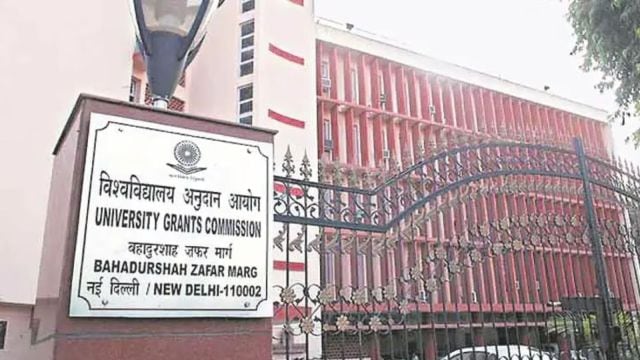
Indian federalism, multilevel in its functioning, is based normatively on the principle of subsidiarity, which essentially means that the authority needs to be invested at the lowest possible level of institutional hierarchy. The subsidiarity principle seeks decentralisation and asserts, to deepen democracy, that the local levels, in relation to the central governments, must be ensured with some degree of functional independence and agency. The architecture of power distribution in the Indian Constitution indicates, more in spirit than in letter, that power must travel from Rajpath (the ruler’s site) to Janpath (where common people tread), down to gram sabhas, which is the real repository of people’s power.
The recent draft University Grants Commission (UGC) regulation on the appointment of vice-chancellor, revising the selection process of 2010, however, doesn’t comply with the essence of such power distribution. On January 21, Kerala became the second state, after Tamil Nadu, that unanimously adopted a resolution calling for immediate withdrawal of the regulation. The opposition to the draft is also coming from NDA allies. According to reports in the Indian Express, Nitish Kumar’s JD (U) has expressed its reservations on the draft rules. Tamil Nadu CM M K Stalin, in a letter addressing his counterparts in the other states, wrote, “UGC guidelines that restrict the role of State Governments in the appointment of Vice-Chancellors and certain administrative admission procedures, including the introduction of entrance exams for UG and PG courses in Universities.”
Notably, the regulation is a shot in the arm for the Governors, if the draft becomes rules, as chancellors/visitors of state universities, will constitute a three-member search-cum-selection committee to pick, not necessarily an academic, as vice-chancellors. The regulation comes with a penal provision that its non-adherence by universities/institutions would debar them from availing the provisions of UGC schemes, including offering degree programmes. In the three-member-committee, the chairman would be the Governor’s nominee, and the two other members would be picked up by the UGC chairman and the apex body of the university (read vice-chancellor) respectively, giving near complete control to Governors, and consequently, to the central government in appointing the administrator of the university.
The state government’s role would be reduced to that of a bystander. The question is: Can UGC, a regulatory commission, promulgate rules with penal provisions that may transgress university acts passed by the democratically elected state legislatures? Isn’t it a gross violation of the principles of federalism and the basic structure doctrine of parliamentary democracy?
The gubernatorial position has been used, more so in recent times, not only to knock off the principle of subsidiarity but to aid egregiously in the ongoing processes of centralisation. The Governors, particularly of opposition-ruled states, are seemingly acting as agents of the central government, largely abnegating their role as holders of an independent constitutional office. A few examples from the recent past testify to the continuous backsliding of federalism.
Apart from walking out of the legislative proceedings thrice, TN Governor R N Ravi allegedly pocket-vetoed some of the key bills on higher education, withheld government orders, and pushed the state government to include the nominee of UGC chairperson in the search committee for vice-chancellors. The case ultimately reached the SC, who told the warring parties to resolve it amicably if they didn’t want the apex court to intervene. Such controversies affect the operations of universities that have to run without leaders. The Governor’s office is constitutionally mandated to act without prejudice, and it is in the interest of the state to maintain its sanctity.
Governor C V Ananda Bose, as chancellor of the universities in West Bengal, scuttled the procedures of appointment of vice-chancellors in several state-run universities — the SC on December 11 gave him another three weeks to appoint the VCs. A large chunk of the state universities’ expenditure is borne by the state governments. The Governor’s control over appointing VCs is no less than the expropriation of state powers by the centre. If education can find a place in the 11th and 12th Schedules of the Constitution that gives power to rural and urban administrations, why can’t it find a place in the state list? After the 42nd amendment of the Constitution in 1976, education was removed from the state list and was placed in the concurrent list. Isn’t it a paradox of federalism that the states that are getting hollowed out of powers to run the state universities are constitutionally mandated to devolve powers to local governments to manage education under Article 243 (g) and 243 (w)? To ensure some semblance of functioning federalism, it is essential to relocate education from the concurrent list to the state list and allow state governments to appoint VCs and chancellors and to leverage Governors as ex-officio visitors to state universities with no special powers.
The original intent of constitutional federalism was, of course, not to have a strong centralised federalism but to have, through “statutory decentralisation”, accommodating diverse needs and aspirations and working on the principles of subsidiarity and asymmetrical federalism. The gubernatorial office has a history of making a rupture to this “original intent” and the present draft UGC guidelines for VC’s appointments, if implemented, will add to the crisis in federalism.
The writer teaches public policy and politics at the University Of Delhi and is honorary vice-chairman at centre for multilevel federalism (CMF), New Delhi